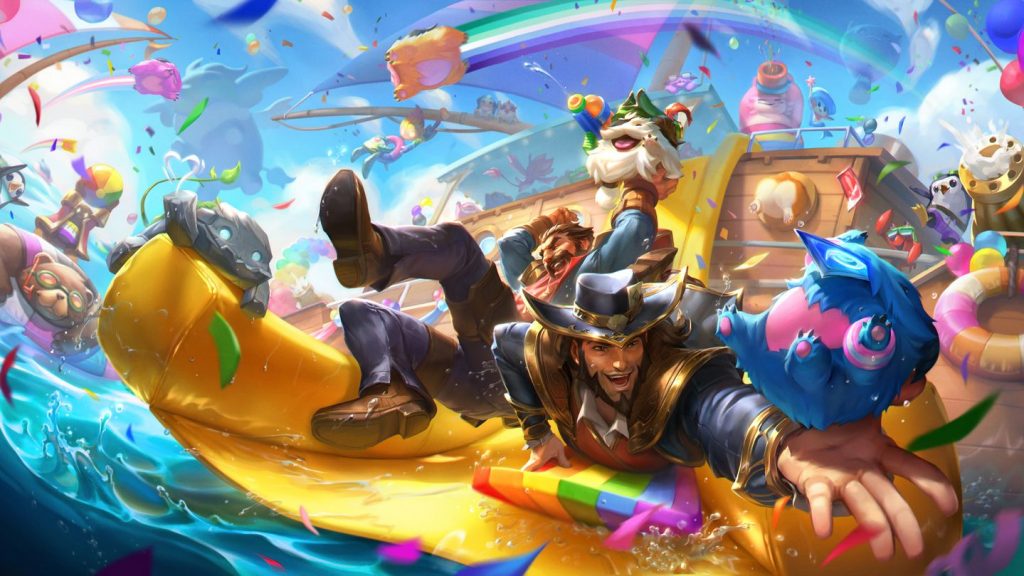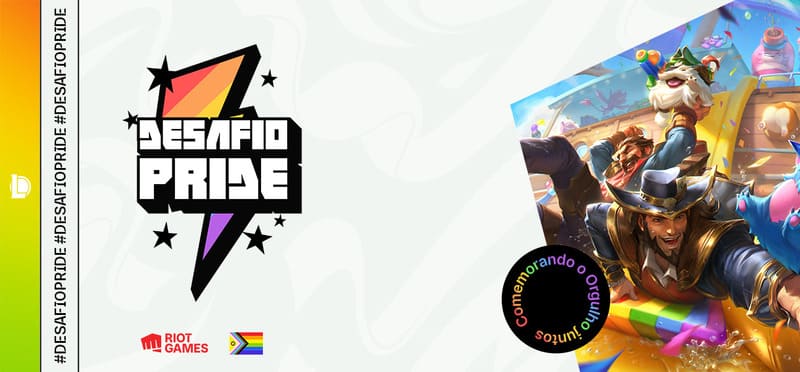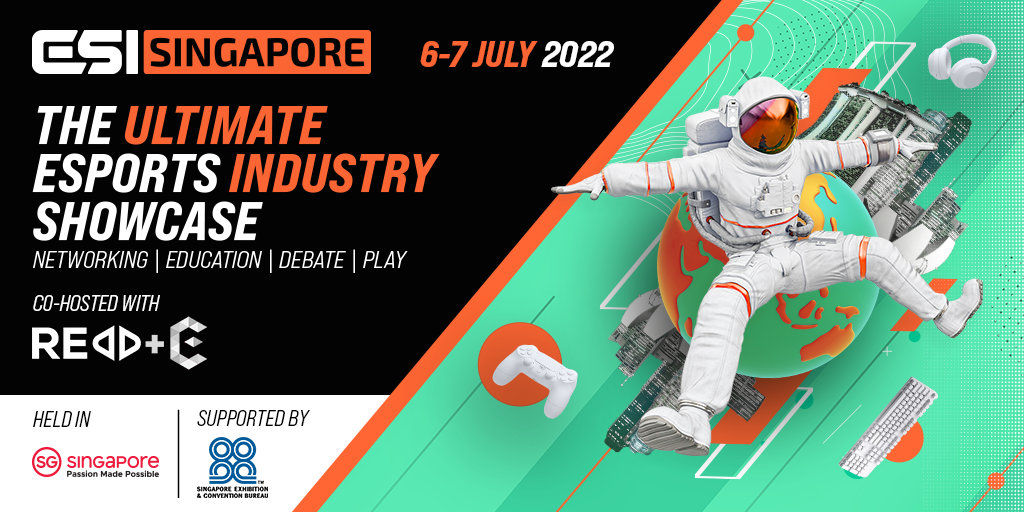
Diversity is a subject often raised in the gaming and esports world. As the industry moves forward and expands, it constantly faces the challenge of having its core, stereotypically non-diverse community embrace and welcome minorities.
In Brazil, initiatives aiming to integrate diversity have been successful in their crucial mission for esports to keep growing, reach new audiences, and become a safe space for all who enjoy competitive gaming.
Since 2020, the Immortals Gaming Club-owned platform Gamers Club has officially organised the Pride Cup. Its 2022 circuit will feature Valorant, League of Legends and Counter-Strike: Global Offensive tournaments focused on the LGBTQ+ community.
Additionally, Final Level, a gaming content company that owns the Gamelanders esports team, has partnered with Riot Games to organise its own circuit celebrating diversity: the Desafio Pride (Portuguese for Pride Challenge). Tournaments in League of Legends, Valorant, and Wild Rift will be held throughout the whole year of 2022.
Esports Insider spoke with Affonso Malta, Art Director at Gamers Club, Rafaela Arnoldi, Communications and Public Affairs at Gamers Club and Fernanda Lobão, CEO at Final Level, about these initiatives.
“The Pride Cup is a move fostered internally at Gamers Club, where we have an internal committee responsible for communicating diversity and inclusion inside the company and in the project Gamers Club develops. From there we partnered with Olga [Rodrigues, CS:GO professional player] to make the Pride Cup, which aims to celebrate diversity,” said Malta.
Olga Rodrigues is the first transexual player to enter the women’s league at Gamers Club CS:GO, becoming a driving force for matters of inclusion in the community. She is now partnered with the company to organise and promote the Pride Cup.
“It is not only creating the event and letting it happen. There is a whole backstage work to allow us to create a safe environment to foster the community,” added Malta.

The Art Director also highlighted that the Pride Cup was important for the LGBTQ+ community not only for giving it visibility but also to bring its members closer to esports, which can be a hostile environment sometimes. Nowadays, Gamers Club even employs some people who found out about the company through the initiative.
Both Malta and Arnoldi said that the Pride Cup is promoted in a natural way. Although it is a competition only LGBTQ+ people can register to play, the whole esports community can support and be involved in it by watching and engaging with the matches. The event not only features esports competitions but also promotes different elements from LGBTQ+ entertainment culture, like drag shows, for example.
“It is a true celebration,” said Arnoldi. “We received testimonials from people of the audience that were really thrilled for seeing such an element from the LGBTQ+ community like a drag show right after a CS:GO match.”
As only LGBTQ+ people can register to play the tournaments, security steps were taken to ensure that all participants are from this community. While Gamers Club demands players go through a demanding process, including sending official documents, Final Level prefers to count on a partner that has experience with this type of tournament, Centra K-Games. Both organisations follow up on every registration.

Final Level’s Fernanda Lobão said that “the objective of the project is to create a safe space for the community and what we seek with each decision is to maintain the integrity of this objective. We understand that it is a delicate topic but we do not want the difficulty of this to prevent us from creating this space.”
Regarding how the esports community reacts to these initiatives, Malta said that no hate was directed toward the Pride Cup. He and Arnoldi attribute that to the inclusion and respect policy that is part of Gamers Club’s community management. “Those that have some kind of negative bias with it are simply choosing to not engage,” said Arnoldi.
Such initiatives also serve to educate the esports community about minorities’ inclusion, which with time builds a structure that protects LGBTQ+ people from attacks that they might otherwise face.
From a commercial point of view, the initiatives attract relevant brands like Acer’s Predator, Razer, and the Itaú bank, which entered as Pride Cup’s presenting partner. On Final Level’s side, Riot Games itself participated in the project.
For Gamers Club, the Pride Cup was even good for expanding business. According to Arnoldi and Malta, the platform, previously known only hosting those who want to play seriously, now also attracts a more casual audience.
The impact is directly felt all across the LGBTQ+ esports community. Gamers Club’s Frontend Software Engineer, and a member of the company’s diversity committee, Leona ‘LeLe’ Souza, shared her insight with Esports Insider: “The Pride Cup made me meet wonderful people who have a lot in common with me, as well as making me feel comfortable so I don’t have to hide who I really am.
“I can confidently say that the Pride Cup changed my life, as I have been a gamer since I was a teenager and started to believe that dreams could come true.”




